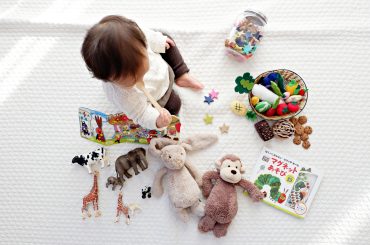As a parent-to-be, you may have wondered if your baby cries in the womb. Actually do babies cry in the womb? Why and what it means? After all, crying is a natural response to babies’ stress, discomfort, and hunger, so it’s not surprising that you’re curious. In this article, we’ll explore the topic of fetal crying and discuss why babies may cry in the womb and what it means for their development.
Contents
Can babies cry in the womb?
The short answer is no. Babies do not cry in the womb the way we typically think of crying. That is because crying involves the release of tears, and fetuses do not produce tears until after birth. However, babies in the womb make sounds and movements that could be interpreted as crying.
Do babies cry in the womb? Why and What It Means

Babies in the womb do not cry in the way we typically think of crying, as crying involves the release of tears, which fetuses do not produce until after birth. However, babies in the womb make sounds and movements that could be interpreted as crying. The vocal cords and respiratory system of a fetus develop in preparation for life outside the womb, which is how they produce sounds while in the womb.
The lungs practice breathing by taking in and letting out amniotic fluid, which can make noises that sound like crying.
Research has shown that fetal crying can tell us a lot about a baby’s emotional and physical health, as well as how well their lungs and voice are developing. For example, babies who make more crying-like sounds in the womb tend to have more muscular respiratory systems and better-developed vocal cords. Fetal crying can also be a sign of possible health problems, and doctors may look at the patterns of fetal crying to figure out how healthy a baby is overall.
Why Do Babies Make Crying-Like Sounds in the Womb?
Babies in the womb may make crying-like sounds for several reasons.

- Practice Breathing and Vocalization:
One of the primary reasons for fetal crying sounds is practicing breathing and vocalization. As babies develop, they start to practice breathing movements that prepare them for life outside the womb.
These movements can include inhaling and exhaling amniotic fluid, producing sounds similar to crying. The lungs and vocal cords are getting ready for life outside the womb, so when a baby practices these movements, it can make sounds like crying.
- Discomfort or Stress:
Babies in the womb may make crying-like sounds if they are experiencing discomfort or stress. That also could be due to a lack of oxygen or nutrients or as a response to loud noise or sudden movement that startles them.
- Hiccuping:

Hiccuping is common in babies in the womb and can produce sounds similar to crying. Hiccuping is a natural part of fetal development, and it helps to strengthen the diaphragm and prepare babies for breathing outside the womb.
- Reflexes:
Fetal crying sounds can also be a result of reflexes. Just like newborns, fetuses have a startle reflex, and sudden movements or noises can trigger this reflex, causing the baby to make crying-like sounds.
- Communication:
While it is unclear if babies in the womb can communicate with their mothers, some studies suggest that fetal crying sounds could be a way for the baby to communicate. For example, if a baby is not getting enough nutrients, it may make sounds that indicate hunger or discomfort.
What Does Fetal Crying Mean for a Baby’s Development?

While fetal crying is not the same as postnatal crying, it can still provide valuable insights into a baby’s development. For example, studies have shown that babies who make more crying-like sounds in the womb tend to have more robust respiratory systems and better-developed vocal cords. That is because practicing breathing and vocalization in the womb helps prepare babies for life outside the womb.
Also, a baby’s emotional and physical health can be shown by how much he or she cries while still in the womb. If a baby makes distressing, crying-like sounds in the womb, it could be a sign that they are not getting enough oxygen or nutrients or experiencing some other form of stress or discomfort.
How to Stop babies making noises in the womb?
Babies in the womb will cry or make noises as a natural part of their development. However, there is no way to physically stop a baby from crying or making noises in the womb.

During pregnancy, babies begin to develop the structures necessary for crying and making noise. They also respond to sounds and stimuli in their environment, such as the mother’s voice, music, or other external sounds.
However, there are things that a mother can do to promote a calm and peaceful environment for her baby in the womb. For example, engaging in relaxing activities such as listening to calming music, taking warm baths, or meditating can help to reduce stress and promote relaxation for both the mother and the baby.
During pregnancy, it is also important for the mother to live a healthy life. This means eating well, getting enough sleep, and staying away from things that are bad for the baby, like alcohol and tobacco.
Overall, while it is impossible to completely stop a baby from crying or making noises in the womb, creating a calm and peaceful environment for the baby can promote their overall health and well-being during pregnancy.
Conclusion
In conclusion, while babies do not cry in the womb the way we typically think of crying, they make sounds and movements that could be interpreted as crying. These sounds are often a natural part of fetal development and can provide valuable insights into a baby’s respiratory and vocal development and emotional and physical health. As always, you must speak with your healthcare provider if you have concerns about your baby’s development.
Read more about your newborn baby to improve your parenting skills and keep your kids happy forever.





